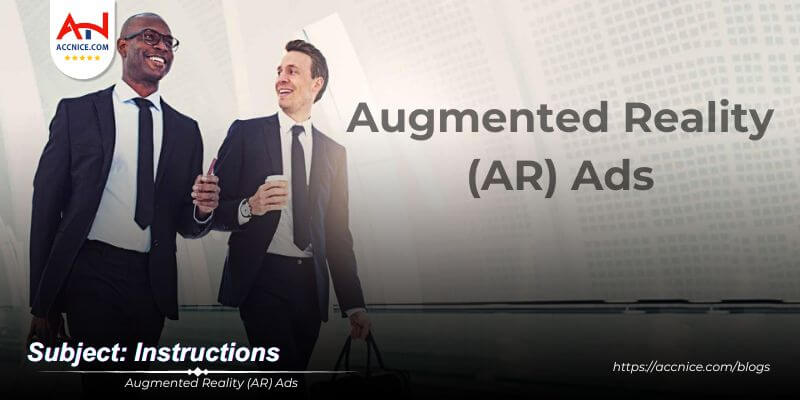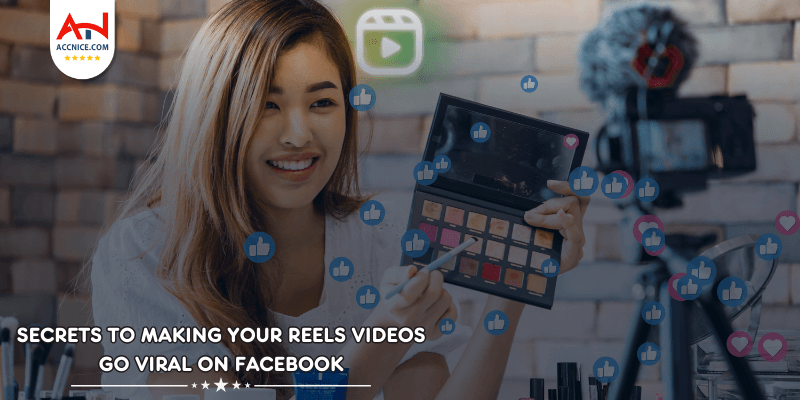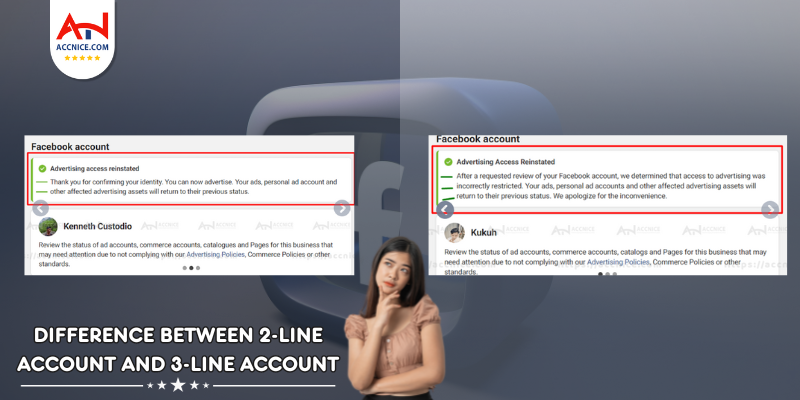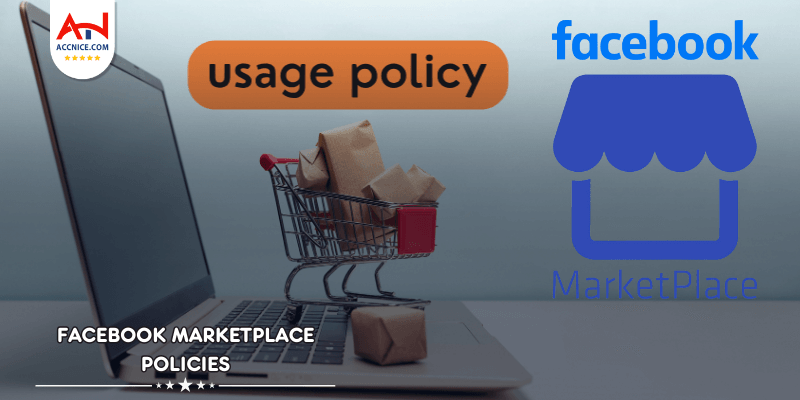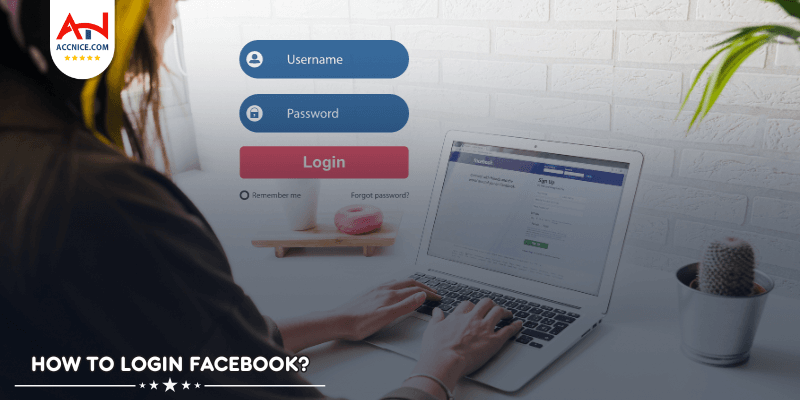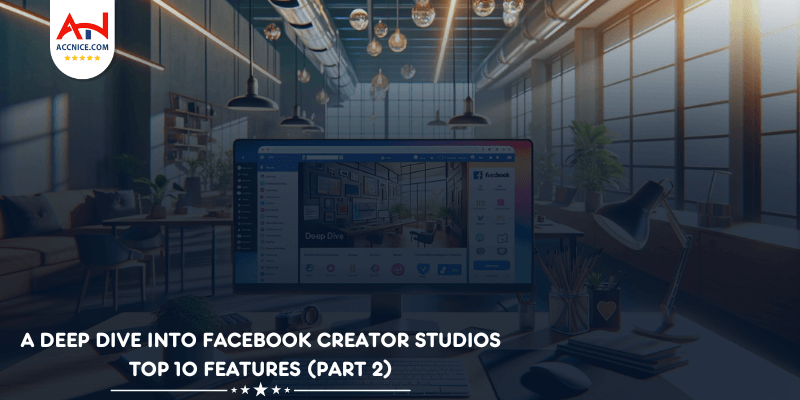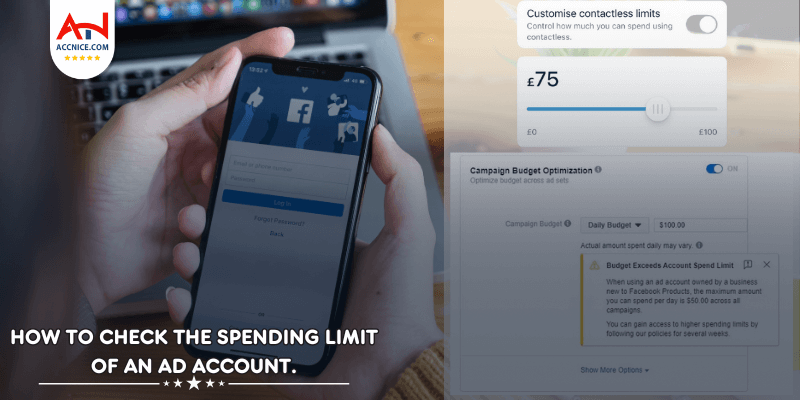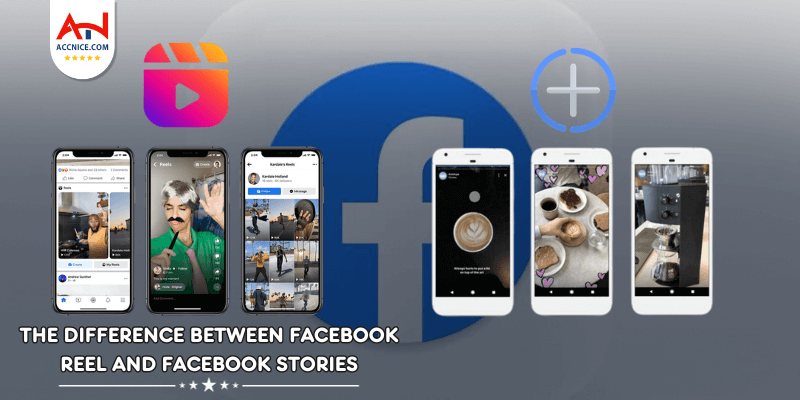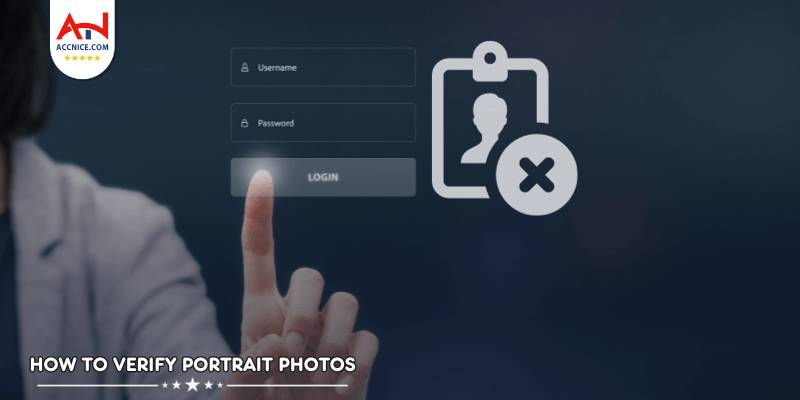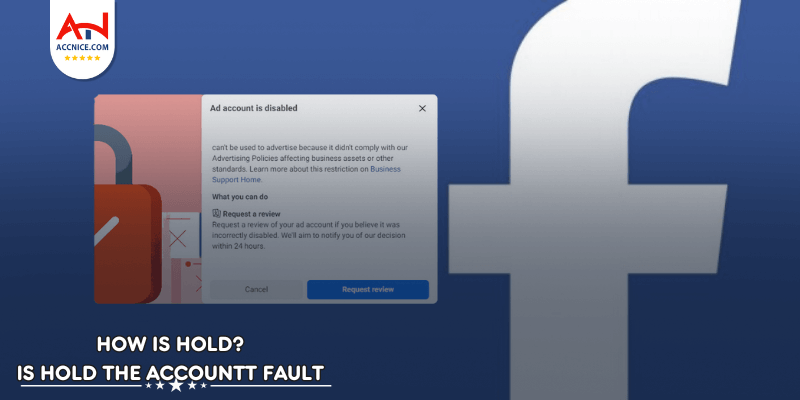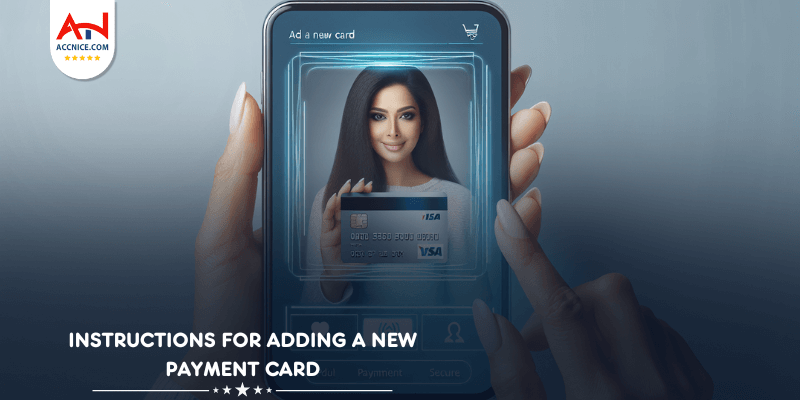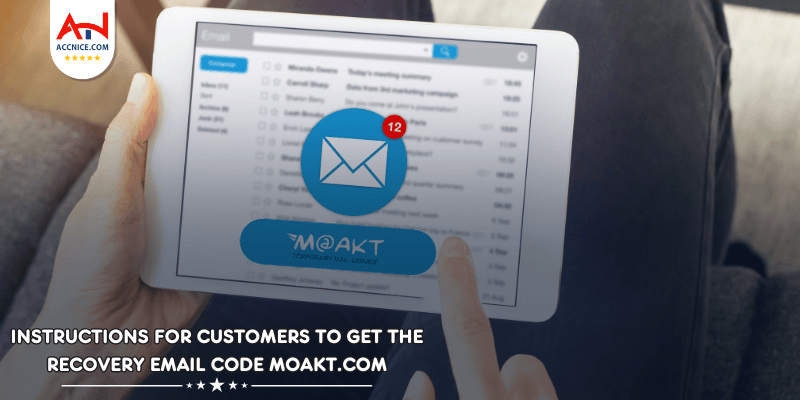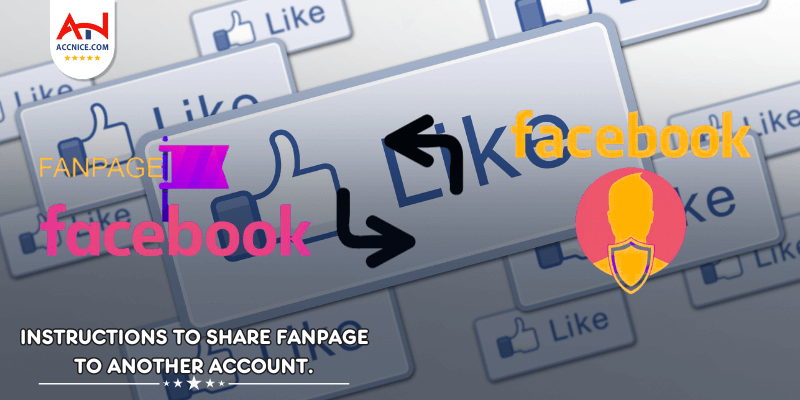Augmented Reality (AR) Ads
Author:
Ngày viết: 2024-11-01 12:48:28
To enhance advertising capabilities, Facebook has introduced augmented reality ads. These interactive ads allow users to engage with products in a virtual space, providing a unique and engaging way for businesses to reach potential customers.
Facebook's new augmented reality (AR) ads are revolutionizing the advertising landscape. These ads allow users to interact with digital products in virtual space, providing a new and engaging way for businesses to connect with their audiences. This article by Accnice explores the benefits, functions, and implementation strategies of AR advertising on Facebook.
Benefits of Augmented Reality Ads

Enhanced User Engagement
AR ads significantly boost user engagement by allowing potential customers to interact with products in a virtual environment. This hands-on experience can capture attention and increase the likelihood of conversion.
- Interactive Experience: Users can manipulate and explore products virtually, leading to higher engagement compared to traditional ads.
- Immersive Advertising: By creating an immersive environment, AR ads capture user attention more effectively, keeping them engaged for longer periods.
- Personalized Interaction: Users can tailor the interaction to their preferences, making the experience more relevant and engaging.
Improved Customer Experience
Users can visualize products in their own space before making a purchase decision, enhancing their shopping experience. This feature is particularly beneficial for industries like fashion, home decor, and automotive, where visualizing the product can influence buying decisions.
- Real-Life Visualization: Customers can see how products fit into their lives, whether it’s trying on clothes virtually or placing furniture in their home.
- Informed Decisions: The ability to see and interact with products in a real-world context helps customers make more informed purchase decisions, reducing uncertainty.
- Convenience: AR ads provide a convenient way for customers to explore products without needing to visit a physical store, saving time and effort.
Increased Conversion Rates
Interactive AR ads provide a unique and memorable experience, which can lead to higher conversion rates. By engaging users in a fun and interactive manner, businesses can build a stronger connection with their audience, ultimately driving sales.
- Memorable Interactions: The novelty and interactivity of AR ads create a lasting impression, making users more likely to remember the brand and product.
- Higher Engagement Leads to Sales: Increased engagement typically translates to higher conversion rates as users are more likely to take action after interacting with an engaging ad.
- Stronger Brand Connection: By offering an enjoyable and innovative experience, businesses can foster a stronger emotional connection with their audience, leading to increased brand loyalty and repeat purchases.
Augmented Reality ads offer numerous benefits that can significantly enhance marketing efforts:
- Enhanced User Engagement: AR ads captivate users by providing an interactive and immersive experience.
- Improved Customer Experience: Customers can visualize products in their own space, making more informed purchase decisions and enjoying a convenient shopping experience.
- Increased Conversion Rates: The engaging and memorable nature of AR ads leads to higher conversion rates and stronger brand connections.
By leveraging AR technology, businesses can create compelling ad experiences that stand out, engage customers, and drive sales.
How Augmented Reality Ads Work

Interactive Features
AR ads on Facebook utilize the camera on a user's device to overlay digital images onto the real world. Here’s how these interactive features enhance user engagement:
- Try-On Virtual Products: Users can virtually try on items such as clothes, accessories, or makeup, allowing them to see how these products would look on them.
- Explore 3D Models: Users can interact with 3D models of products, rotating and zooming in to view details from every angle.
- Real-Time Interaction: Branded content is dynamic, allowing users to make adjustments such as changing colors, styles, or sizes, and see the changes instantly.
Seamless Integration
AR ads are seamlessly integrated into Facebook’s advertising platform, making it easy for businesses to create and manage AR ad campaigns:
- Ad Manager: Businesses use Facebook’s Ad Manager to create AR ad campaigns. This platform provides tools for designing, setting up, and monitoring ad performance.
- Targeting Specific Audiences: Businesses can target their AR ads to specific audiences based on demographics, interests, behaviors, and more. This precision targeting helps ensure that the ads reach the most relevant users.
- Compatibility: The ads are designed to work smoothly across various devices that support AR functionality, ensuring a broad reach.
User-Friendly Interface
The interface for AR ads is designed to be intuitive and user-friendly, ensuring a seamless experience for users:
- Activation: When users encounter an AR ad in their feed, they simply click on the ad to activate the AR experience.
- Interaction: Once activated, users can interact with the product in several ways. They can try on virtual items, explore products from different angles, and customize features like color and style.
- Navigation: The interface guides users through the interaction process, making it easy to engage with the AR content without needing any prior experience with AR technology.
AR ads on Facebook provide a powerful and engaging way for businesses to connect with their audience. Here’s a summary of how they work and their benefits:
- Interactive Features: Utilizing device cameras, AR ads overlay digital images onto the real world, allowing users to try on products and interact with 3D models in real-time.
- Seamless Integration: Businesses can easily create and manage AR ad campaigns through Facebook’s Ad Manager, targeting specific audiences effectively.
- User-Friendly Interface: The intuitive interface ensures that users can easily activate and interact with AR ads, enhancing their overall experience.
By leveraging these features, businesses can create memorable and engaging advertising experiences that captivate users, improve customer experience, and drive higher conversion rates.
Examples of Successful AR Ad Campaigns

Fashion and Beauty
Fashion and beauty brands have effectively harnessed the power of AR ads to provide immersive and interactive shopping experiences.
-
Fashion Brands:
- Virtual Try-Ons: Brands like Gucci and ASOS have implemented AR ads that allow users to try on virtual clothing and accessories. By using their device's camera, users can see how items like sunglasses, hats, and other accessories look on them in real-time.
- Enhanced Shopping Experience: This interactive feature not only engages users but also helps reduce the uncertainty associated with online shopping, increasing the likelihood of conversion.
-
Beauty Brands:
- Makeup Testing: Beauty brands such as L’Oréal and Sephora use AR ads to let users test different makeup products, like lipstick and eyeshadow. Users can see a realistic preview of how the products will look on their skin tone and face shape.
- Personalized Recommendations: By allowing users to virtually try on products, these brands can provide personalized recommendations, enhancing the user experience and boosting sales.
Automotive Industry
Car manufacturers have utilized AR ads to provide potential buyers with an immersive exploration of new car models.
- Virtual Car Tours:
- Interior and Exterior Exploration: Brands like BMW and Audi have created AR ads that enable users to explore the interior and exterior of new car models. Users can virtually walk around the car, look inside, and examine features in detail.
- Customization: Users can change the color, view different trims, and even customize features to see how various options would look. This level of interaction helps customers feel more connected to the product.
- Simulated Driving Experiences: Some campaigns also include simulated driving experiences, where users can virtually "drive" the car, experiencing features like handling and interior comfort.
Home Decor
Home decor companies have leveraged AR ads to help customers visualize furniture and decor items in their own spaces.
- Virtual Furniture Placement:
- Real-Time Visualization: Brands like IKEA and Wayfair use AR ads that allow users to place virtual furniture in their living spaces. Users can see how sofas, tables, and other items fit and match with their existing decor.
- Enhanced Decision Making: This interactive experience helps customers make better-informed decisions, reducing the likelihood of returns and increasing satisfaction with purchases.
- Room Customization: Users can customize the placement, color, and style of furniture items, helping them visualize different design possibilities in their homes.
AR ad campaigns have proven successful across various industries by providing interactive and immersive experiences that enhance user engagement and drive conversions. Here’s a summary of the impact of AR ads in different sectors:
- Fashion and Beauty: Virtual try-ons and makeup testing help users visualize products, reducing uncertainty and increasing conversion rates.
- Automotive Industry: Virtual car tours and customization options engage potential buyers, providing an in-depth exploration of new models and enhancing the buying experience.
- Home Decor: Real-time visualization of furniture and decor items in users' homes helps customers make informed decisions, improving satisfaction and reducing returns.
By leveraging AR technology, brands can create compelling ad experiences that captivate users, improve customer experience, and drive sales.
Implementing AR Ads on Facebook

Setting Up AR Ads
-
Create AR Content:
- Spark AR Studio: To set up AR ads on Facebook, businesses need to create AR content using tools like Spark AR Studio. This platform provides the necessary tools to design and build interactive AR experiences tailored to products and brand aesthetics.
- Design and Development: Use Spark AR Studio to create engaging AR effects such as virtual try-ons, 3D product models, and interactive filters. Ensure that the content is optimized for mobile devices to provide a smooth user experience.
-
Ad Creation in Facebook Ad Manager:
- Upload AR Effects: Once the AR content is created, upload it to Facebook’s Ad Manager. Follow the prompts to ensure the AR effects are correctly integrated.
- Ad Format Selection: Choose the appropriate ad format for your campaign. For AR ads, ensure the format supports interactive elements, such as “Augmented Reality Ads.”
- Ad Copy and Creative: Complement the AR effects with engaging ad copy and high-quality visuals. Clear instructions on how to interact with the AR feature can enhance user experience.
Targeting the Right Audience
-
Utilize Advanced Targeting Options:
- Demographic Targeting: Specify demographics such as age, gender, location, and language to reach the most relevant audience.
- Interest Targeting: Target users based on their interests, such as fashion, beauty, automotive, or home decor, depending on the product.
- Behavior Targeting: Use behavior targeting to reach users based on their online activities and purchase behaviors, ensuring your ads reach those most likely to engage and convert.
-
Custom and Lookalike Audiences:
- Custom Audiences: Create custom audiences from your existing customer data, such as email lists or website visitors, to retarget interested users.
- Lookalike Audiences: Generate lookalike audiences to find new users who resemble your best customers, expanding your reach to potential high-value users.
Measuring Success
-
Comprehensive Analytics Tools:
- Engagement Metrics: Track metrics such as clicks, shares, and comments to gauge user engagement with your AR ads.
- Interaction Time: Measure how much time users spend interacting with the AR content to understand its appeal and effectiveness.
- Conversion Rates: Monitor conversion rates to see how many users take the desired action, such as making a purchase or signing up for a newsletter, after engaging with the AR ad.
-
Data-Driven Optimization:
- Performance Analysis: Use Facebook’s analytics tools to analyze the performance data of your AR ad campaigns.
- Campaign Adjustments: Based on the insights gained, optimize your campaigns by tweaking targeting options, ad creatives, and AR content to improve results.
- A/B Testing: Conduct A/B tests to compare different versions of AR ads and determine which elements resonate best with your audience.
Conclusion
Augmented reality ads on Facebook provide a cutting-edge way for businesses to engage with their audience through interactive and immersive experiences. Here’s a summary of the implementation process and its benefits:
- Setting Up AR Ads: Create AR content using Spark AR Studio and integrate it with Facebook Ad Manager to launch engaging AR ad campaigns.
- Targeting the Right Audience: Utilize Facebook’s advanced targeting options to reach users most likely to be interested in your products, enhancing the effectiveness of your campaigns.
- Measuring Success: Track and analyze engagement, interaction time, and conversion rates using Facebook’s analytics tools to optimize your AR ad campaigns for better results.
By leveraging these innovative ad formats, businesses can enhance user engagement, improve customer experience, and increase conversion rates, positioning themselves competitively in the evolving digital landscape.
Thank You For Following Accnice.com
Buy Facebook, TikTok, Twitter, Instagram, Google advertising accounts and Genuine License Keys at the best prices at Accnice.com
